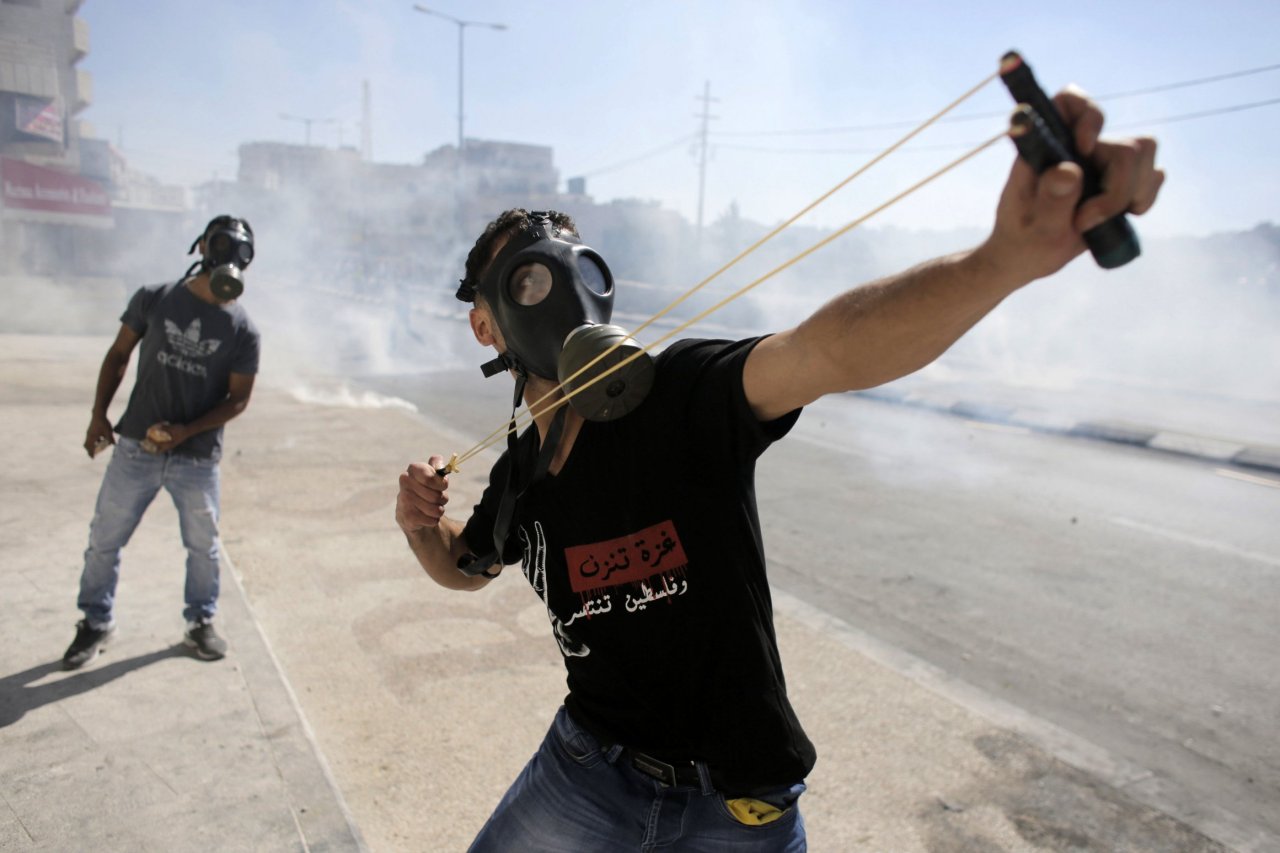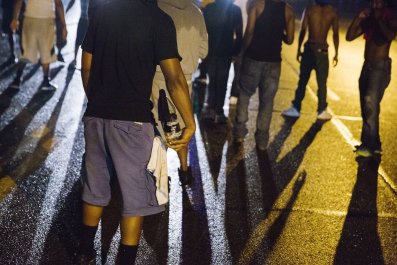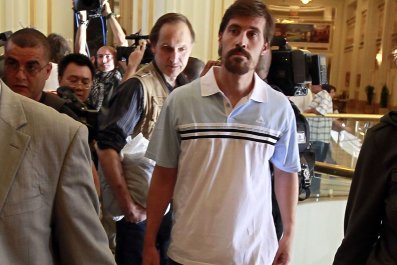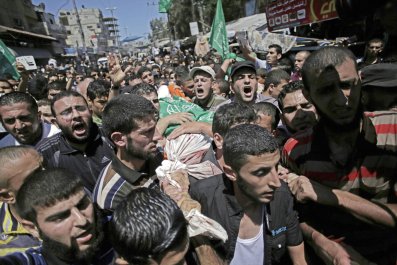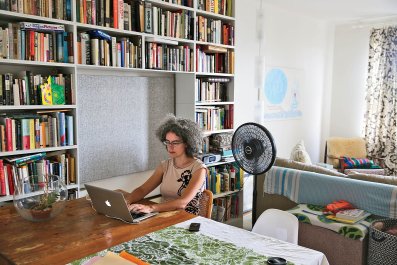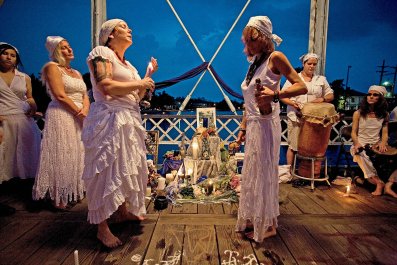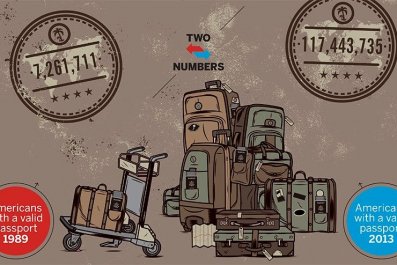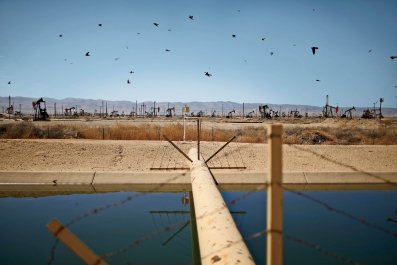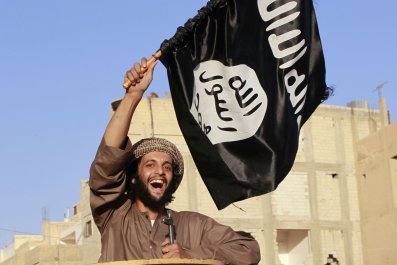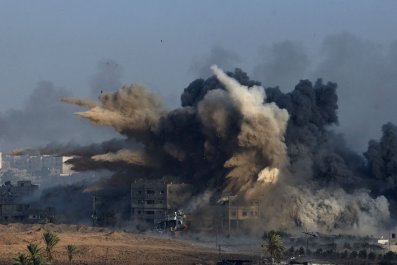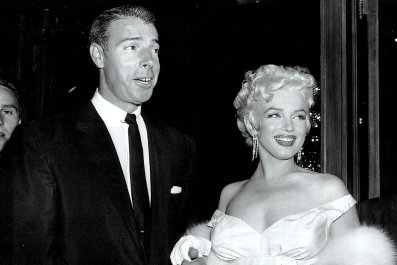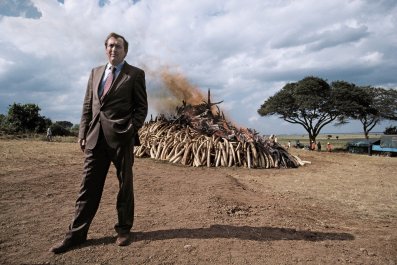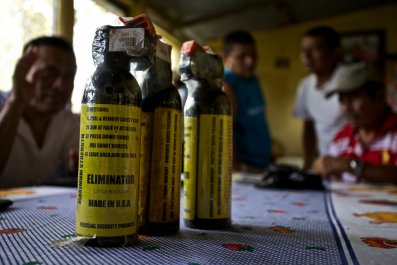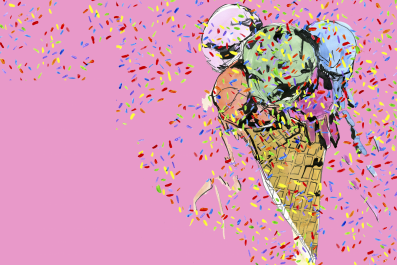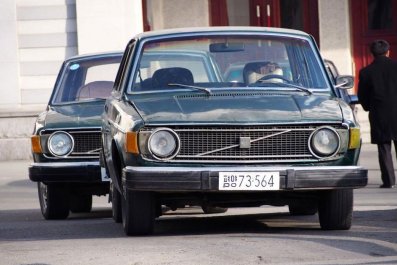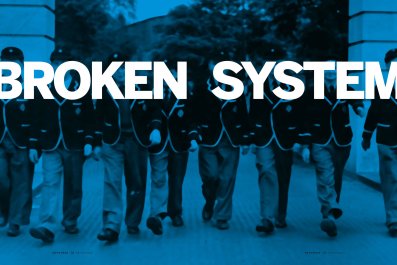It is a Saturday morning, and Mahmoud Subuh, at his desk in the Balata Refugee camp, is tired. For more than a month now the 48-year-old has been watching Gaza, where much of his family live, with dread. Like most in the West Bank he's horrified by the mounting death toll, and anxious as the situation around him simmers.
Despairing at decades of Israeli occupation and dissatisfied with years of fruitless peace talks, the people of the West Bank – the occupied Palestinian territory at Israel's east – are making their anger known.
Last month 10,000 people marched against the Gaza war, clashes are now taking place daily, and a full boycott of Israel is gathering heady momentum. For the first time in years, the word Intifada – uprising – is now being uttered here in all seriousness.
At times like these, Subuh says, people look to places like Balata for an answering spark. The camp, he explains, is "a very special place", the "barometer of the rest of Palestine". Situated in the West Bank's north, it was created for some of the 750,000 Palestinians expelled in the Nakba, or catastrophe, that accompanied the 1948 creation of Israel.
Now, the single square kilometre of stacked concrete is home to more than 29,000 people: it was a major driver of the Intifada, or uprisings, which started in 1987 and 2000, and it's where many militant and political groups were born. But today, the explosion that many anticipated in Balata is yet to come.
"Things were different this time," Subuh, who runs a psychosocial centre at the camp, continues. "The reaction to Gaza wasn't what people expected." Over the past few weeks there have been regular protests, charity collections and an increased commitment to armed struggle, but sustained, organised, large-scale action is – so far – yet to happen.
There's a reason for that. In its turbulent history, Balata has lost a great deal, and deaths, injuries, arrests and home demolitions at the hands of the Israeli army loom large in this community's past and present.
"The people here understand," Subuh says. "They know that when it happens – when we stand up and do something – then we pay the price."
Subuh does not refer to a trivial sum. During the second Intifada Balata was placed under a full siege: electricity and power was cut off for weeks, and barbed wire, concrete blocks and snipers were placed around the entrance to the camp.
Hundreds of the 1,832 Palestinians killed by Israelis in the West Bank were from Balata. Faced with resistance from its residential maze, forces simply smashed through connecting houses to reach targets, setting up ad-hoc military bases in living rooms while armed guards detained families in the kitchen.
Today, Balata remains a place where the majority of men have spent time in Israeli jails, and where Israeli troops frequently arrest men from their beds at night. Unemployment is estimated to stand at around 50% – more among the young – and militancy and marginalisation has led to social problems. Clashes at nearby checkpoints – where young men gather on Fridays, holding flags and throwing stones and fireworks – frequently end in serious injuries, and even death.
For young people like Luai the despair and anger is eroding all hopes of peace. "How can I live with the people who put my father in prison?" he asks, speaking, like his friends, under a pseudonym for fear of retaliatory violence or arrest.
At 24, Luai has spent most of his life with his father jailed, and in the past few weeks a close friend in Gaza has seen his whole family killed. Hamza, 18, who hopes to work as a translator, shares his friend's hopelessness. "People don't trust Israel," he says. "They come to kill us in the night. They want the land, and they don't want Palestinians here. They want everything."
At mention of the Fatah-controlled Palestinian Authority, which maintains partial governance in the West Bank, the young men merely laugh. The same scorn is reserved for Western and Arab governments.
Years of peace negotiations, they say, have secured no progress toward a Palestinian state: now the people must fight their own corner. "We need to do what the people in Gaza did, and defend ourselves," Hamza argues. "They have to stop the negotiation. It doesn't make sense, and it's not going anywhere. What is taken by force can only be reclaimed by force."
But rhetoric is easier than action. The Palestinian Authority is still persevering with diplomatic means, and while Hamas, which controls the Gaza Strip, has garnered enormous support in the past few weeks, the young men think a unified vision and leadership is a long way off.
The people of Balata know, too, that Intifada isn't a romantic photograph of a boy throwing a stone at a tank. Even as his friends discuss the necessity of uprising, 18-year-old Tariq voices his opposition: "I don't want a third Intifada," he says. "I want to live."
Any real action, the men agree, is years, not weeks or months down the line. It requires organising and resources, and international support. And most of all, they say, it requires unity. "Before we should even try to have a third Intifada, we need to just work on getting together, organising between all the Palestinian people," says Hamza. "Not Hamas or Fatah, or other parties: just all the Palestinian people."
At his desk in Balata, Subuh continues to watch. "This is a real waiting time, but people are waiting with short patience," he says. "The message that is coming from Gaza, from the people who lost, is that 'we are expecting this sacrifice as the price of having a life'. That's a powerful thing: someone who's lost his family saluting the resistance, and saluting the patience of the people."
Balata is boiling. But memory weighs heavily on the camp, and the questions of when, what and how change will happen remain unanswered. Though action might be inevitable, residents say, calculating the sacrifice may still take time.



